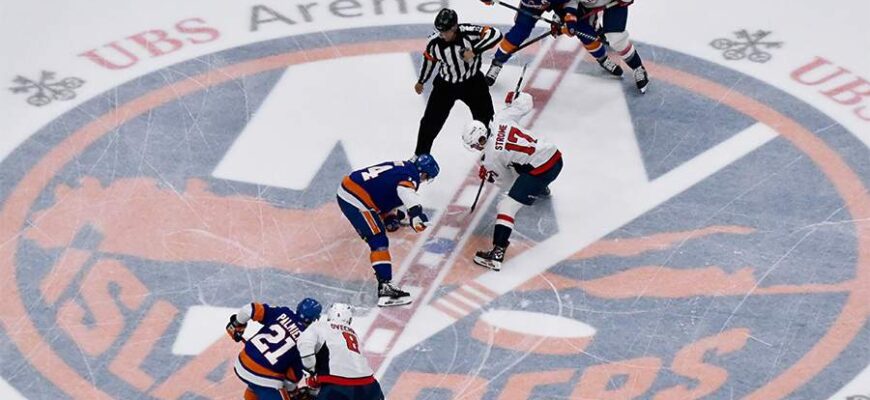The International Ice Hockey Federation (IIHF), the National Hockey League (NHL), and the NHL Players` Association (NHLPA) have officially reached an agreement confirming that NHL players will participate in the 2026 Winter Olympics set to take place in Milan, Italy. This marks the first time since the 2014 Sochi Games that NHL players will compete on the Olympic stage.
The agreement also includes the possibility for NHL players to participate in the 2030 Winter Olympics, which are planned for the French Alps.
IOC president Kirsty Coventry welcomed the development in a statement: `The IOC welcomes the agreement between the International Ice Hockey Federation (IIHF), the National Hockey League (NHL), and the National Hockey League Players` Association (NHLPA). This agreement will lead to the participation of all the best Ice Hockey players of the world in the Olympic Winter Games Milano Cortina 2026 and the Olympic Winter Games 2030. All the parties who were involved in coming to this agreement should be commended for this excellent result.`
This is a significant milestone for the sport, allowing top NHL talent to represent their countries internationally for the first time in over a decade. Let`s explore what makes this announcement so historic.
NHL Players` Olympic Hiatus Since 2014
The last time NHL players featured in the Winter Olympics was in 2014 when Canada claimed the gold medal. That roster included notable NHL stars such as Sidney Crosby, Duncan Keith, Roberto Luongo, Corey Perry, and Jonathan Toews, many of whom have since retired from professional hockey.
While veterans like Crosby, Perry, and Toews are still playing, a generation of current NHL superstars has yet to experience playing in an Olympic tournament. Elite talents like Edmonton Oilers captain Connor McDavid, Toronto Maple Leafs standout Auston Matthews, and Colorado Avalanche forward Nathan MacKinnon have become dominant forces in the league over the past several seasons without having the opportunity to compete for Olympic gold.
Having players of this caliber on the Olympic stage could significantly enhance the NHL`s global profile and visibility, providing even casual fans with a chance to see them perform in a major international event.
Building on the Success of the 4 Nations Face-Off
With NHL players absent from the Olympics for a decade, the recent inaugural 4 Nations Face-Off tournament served as a successful showcase for the league`s top talent. It offered players the chance to wear their national team jerseys and compete against rivals from other top hockey nations.
The first edition of the 4 Nations Face-Off, despite featuring only Canada, Finland, Sweden, and the United States, delivered plenty of excitement. The initial matchup between the U.S. and Canada opened memorably with three fights in the first nine seconds, including Matthew and Brady Tkachuk clashing with Sam Bennett and Brandon Hagel. The Americans won that heated opener 3-1, setting an intense tone.
As widely anticipated, the United States and Canada met again five days later in the Championship Game. The teams exchanged goals through the first two periods, ultimately needing overtime to decide the winner. Connor McDavid scored the dramatic game-winning goal, securing a 3-2 overtime victory for Canada.
The tournament`s intensity captivated many viewers, including casual fans. This eight-day assembly of elite talent provided thrilling action, and the success suggests a high level of interest will surround the Olympic ice hockey competition in Milan next year.
USA`s Opportunity for Gold: First Time Since 1980
One of the most iconic moments in American sports history remains the `Miracle on Ice` team that won gold at the 1980 Lake Placid Olympics. The U.S. team was a significant underdog against the dominant Soviet Union, which had won five of the previous six Olympic hockey gold medals.
The challenge for the Americans was immense. The Soviet team consisted of seasoned professional players with extensive international experience. In contrast, the U.S. roster was composed primarily of amateur players, with only four having any minor league experience. However, under the guidance of legendary coach Herb Brooks, the U.S. team defeated the Soviets 4-3 in the medal round, rallying from a 3-2 deficit in the third period. Mike Eruzione scored the decisive goal with 10 minutes remaining. The United States then went on to secure the gold medal by defeating Finland 4-2, sealed by three goals in the final period.
Since that legendary `Miracle on Ice` victory, the United States has not won another Olympic gold medal in men`s ice hockey. They have earned only two more medals, both silver, at the 2002 Salt Lake City and 2010 Vancouver Games.
While the final team rosters will not be announced until closer to the opening ceremonies, the 2026 U.S. team is expected to be one of the deepest and most talented groups the nation has ever assembled. This provides the United States with a strong chance to contend for a gold medal and potentially seek a measure of revenge against rivals like Canada in 2026.








